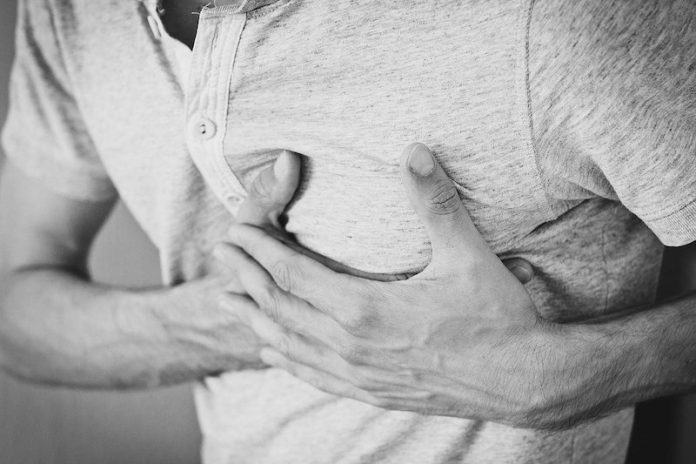
In a new study, researchers found that millions of Americans don’t know any heart attack symptoms or how to best respond to them.
The research was conducted by a team at Yale University and elsewhere.
About 805,000 Americans have a heart attack each year, and about 15% of them die from it.
Because early intervention is so critical, health officials have spent decades trying to improve public knowledge of heart attack symptoms and the appropriate emergency response.
In the study, the team wanted to find out whether the message was sinking in. Using data from the 2017 National Health Interview Survey, they looked at more than 25,000 U.S. adults.
Participants were asked to answer “yes” or “no” to whether the following were symptoms of a heart attack: chest pain/discomfort; shortness of breath; pain/discomfort in arm/shoulder; feeling weak/lightheaded/faint; and jaw/neck/back pain.
The team found that nearly 6% of respondents were not aware of any of the symptoms. About 53% were aware of all five symptoms.
They say that nearly 6% of individuals – which represents over 13.5 million adults in the U.S. – were not aware of a single symptom of a heart attack.
The study also found men, blacks, Hispanics, people born outside the U.S., and those with high school or lower education were much more likely to not be aware of any symptoms.
These are the subgroups that are most in need of and may benefit the most from, targeted public health awareness initiatives.
Study participants also were asked whether the best response to a perceived heart attack is calling emergency medical services or “other.” About 4.5% chose “other.”
The team says that concerns about cost could be why many low-income populations don’t immediately call emergency services.
Having timely access to emergency medical care can be lifesaving, for which both prompt recognition of symptoms and appropriate rapid emergency response are crucial.
The research is a much-needed reminder of the persistent lack of health care knowledge among many U.S. adults, especially minorities.
The lead author of the study is Shiwani Mahajan.
The study was presented at the American Heart Association’s Scientific Sessions.
Copyright © 2019 Knowridge Science Report. All rights reserved.



